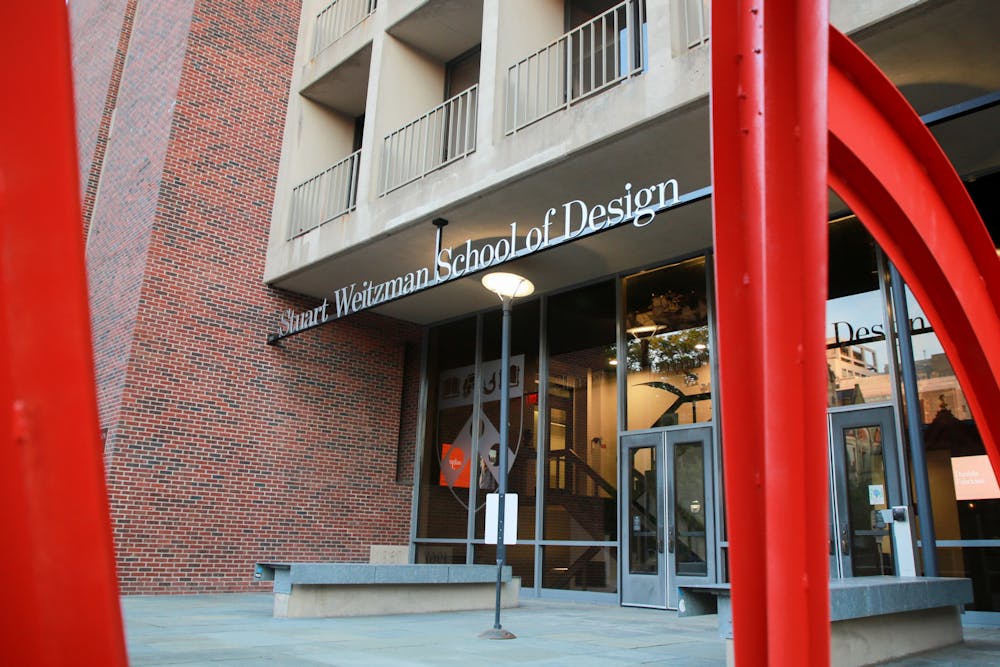
The Stuart Weitzman School of Design recently announced that it will award Chinese architect Lin Huiyin a posthumous Bachelor of Architecture diploma in May 2024. This decision was made after a careful investigation initiated by Fritz Steiner, the Weitzman School Dean, in 2022.
Lin came to Penn in 1924 to pursue a degree in fine arts, but her real ambition lay in architecture. However, she could not enroll in the architecture program because the architecture school did not want women to “work on their drafting at all hours of the night” alongside men. Nevertheless, she finished most of the coursework required for the Bachelor of Architecture degree. She completed her studies with outstanding grades and often outperformed her male classmates, but she was still deprived of the architecture diploma.
After Lin graduated from Penn, she went back to China to start her career in design. She documented ancient architectural styles in China that would otherwise disappear, and she participated in the design of the National emblem and the Monument to the People's Heroes. She was among the “first generation of modern Chinese architects” and the most famous female architect in Chinese history.
Awarding Lin a degree in architecture is a great step towards remedying historical injustice to women. Steiner said that excluding Lin and other female students of her time from the architecture program “[was] not right.” Since Lin demonstrated strong interest in the architecture program and completed the necessary courses with distinction, she should receive a diploma, even though her accomplishments later in life are far beyond what this diploma can reflect.
Lin grew up in a very idiosyncratic environment: she came from an influential academic family and received an education better than that accessible to most women of her time; but growing up in a Chinese society that was not yet stable and open, she found it difficult to express her talents. Nevertheless, in awarding Lin the architecture diploma, Penn is taking the right step in recognizing the achievements of its female alumni.
More crucially, the diploma reminds us that Lin was a distinguished architect. At present, she is better known in China for her love life and personality, especially because of her poem, “You are the April of this World,” and her romantic stories with several suitors. There is the belief that Lin came to Penn because she wanted to accompany her future husband, Liang Sicheng. Yet records show that Lin and Liang lived separately during their time at Penn, and Lin was preoccupied with her studies as she needed to graduate in three years.
Social norms of the early 20th century restricted Lin’s professional pursuits and biased our perception of her, but she responded by producing extraordinary achievements in school and beyond. Portraying Lin as an architect shows our respect to her determination in pursuing this field and contributing to the society that mistreated her. Lin herself wanted to be remembered as an architect, as this was the title carved on her grave: “Architect Lin Huiyin’s grave.”
When looking at the life of Lin and other female professionals, we must keep in mind the challenges they faced in their careers and appreciate their works with this context in mind. Instead of accepting the public characterization of them, we need to find out and celebrate the ways in which they wished to be defined.
Lin’s story remains relevant even though Penn now offers equal opportunities to male and female students. It is fortunate that we do not encounter the difficulties that Lin faced 100 years ago, and we can take advantage of the academic freedom that Penn offers us to define ourselves. At the same time, we should remember that there still are people who cannot go to college or receive the education they hope for. They may have limited choices in career paths and other aspects in life, and our perception of these people should capture this limitation.
FRANKLIN LI is a College first year from Beijing, China. His email is liyuzhou@sas.upenn.edu.
The Daily Pennsylvanian is an independent, student-run newspaper. Please consider making a donation to support the coverage that shapes the University. Your generosity ensures a future of strong journalism at Penn.
Donate



